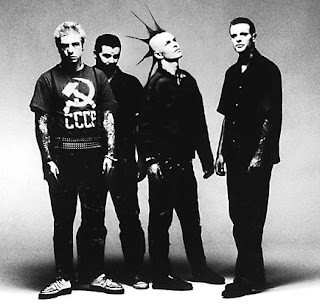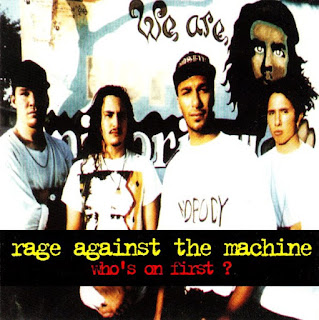Now it’s 2013 and the Tedeschi Trucks Band returns after two years on the road with its second studio effort, Made Up Mind. While a lot has been made of the similarity of Tedeschi’s vocals to those of the great Bonnie Raitt, Made Up Mind brings another comparison to my mind, to the underrated Bonnie Bramlett and her late 1960s/early 1970s collaborations with her late husband Delaney. Much like Bramlett, Tedeschi wrings every bit of juice out of a lyric, and what is the Tedeschi Trucks Band but a modern-day conglomeration of talent like Delaney & Bonnie & Friends, with Trucks playing the role of both Delaney Bramlett and Eric Clapton?
Tedeschi Trucks Band’s Made Up Mind
Made Up Mind opens with the title track, Trucks’ chunky guitar
scrape accompanied by a funky, choogling groove and full, rich backing
instrumentation. Tedeschi’s lovely voice kicks in, displaying her Etta James
influences, the singer rolling with the groove and soaring above the fray when
necessary only to trail off in favor of Trucks’ fluid, sizzling guitar solo.
This is the kind of ready-made, radio-friendly jam that would have dominated
the AOR airwaves in the early-to-mid-1990s but today it plays to a mainstream
blues audience ill served by corporate radio.
“Do I Look Worried”
takes the band back to an even earlier era, Tedeschi’s stunning torch-song
styled performance creating a 1950s R&B vibe, as seen through a 1970s
blues-rock lens, the sound reinforced by the band’s subtle, elegant use of
horns in the background. The song’s lush instrumentation threatens to
overwhelm the singer, Tedeschi nevertheless rising to the occasion, assisted
by Trucks’ gorgeous guitar lines and stinging solos. “Idle Wind” is a pure
1970s construct, the sort of bluesy, folkie, acoustic rock hymn that many of
us cut our eye teeth on back in the day, the song darkly imaginative, with a
lovely use of Kofi Burbridge’s feathery flute runs and a soft layer of
horns.
Calling Out To You
Hands down, the most raucous tune on Made Up Mind, “The Storm” amps up Trucks’ rattletrap guitar riffs while the rhythm section cranks out a ramshackle juke-joint groove straight out of the Junior Kimbrough/R.L. Burnside playbook. There’s more at play here than a Mississippi Hill Country influence, however, Tedeschi throwing a little Memphis soul into her vocals while Trucks tosses off a golden jazz-flecked solo that invokes Luther Johnson as much as Luther Dickinson while Burbridge’s gospel-tinged keyboards ride shotgun before chaos descends at around the five-minute mark as Derek clearly loses his mind (speaking instrumentally, of course) and tears off a deadly swamp-blues solo mixing Duane Allman’s greasy tones with John Campbell’s Delta dirt. Providing a stark contrast, the album closes with the acoustic “Calling Out To You,” a fine showcase not only for Tedeschi’s vocal skills but also for Trucks’ six-string dexterity as the two record sans band for a charming and entirely intimate performance.
The Reverend’s Bottom Line
The album’s songwriting is, admittedly, the weakest part of
Made Up Mind, too many of the album’s tunes composed by committee and
lacking a lyrical cohesion (several songs co-written by the Jayhawks’ Gary
Louris). The best material seems to be that which echoes a singular voice, the
title track, “Do I Look Worried,” and “Misunderstood” particularly standing
out from the crowd. Whereas the size of the band may have created an obstacle
in the instrumental composition of the material, the talents involved and the
chemistry created by a couple years on the road has created an entertaining
and musically exciting blend of blues, soul, and rock ‘n’ roll.
The Tedeschi Trucks Band has been accused of recording an album
that is more “pop” than blues with Made Up Mind, and there’s no denying
the mainstream appeal of these bright, shiny performances. It’s the band’s
love of the music, however, that makes Made Up Mind a winner. This may
not be your daddy’s blues, but this is a big tent that we’re all under, with
plenty of room for newcomers, and Tedeschi Trucks Band is redefining rhythm
and blues with a sound entirely its own... (Sony Masterworks, released August
20, 2013)
Buy the CD at Amazon:
Tedeschi Trucks Band’s Made Up Mind












